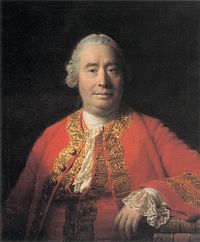Strangely enough, I don't typically like Lewis' books while I am reading them. I find them hard to get through. The plots (if you can call them plots) are slow and filled with too much minutia to be called a fun read. But, none-the-less, I find myself compelled to read on and finish the books. And in the end, I'm very happy I did.
In The Big Short, Lewis tells a story, well actually several stories, of individuals who shorted the mortgage market just prior to the market debacle a few years ago. They were betting that the mortgage market would collapse - and it did. He talks about their personalities, the reasons behind their convictions, their difficulties in executing their strategies and a host of almost amusing anecdotes. In the end they were right and their shorts paid off. On this level, I found the book just painful. Perhaps others readers may be amused or alarmed by those stories, but not me. Given my history, it was just painful.
So why am I ultimately glad I read this book? Because this book is not about its plot. Lewis puts his real story under the surface.
In good poetry or art - images are presented to the reader/viewer. What these images mean depends at least in part on the viewer. The goal of the artist, or in this case the author, is to present images that are rich with content such that when the viewer sees it, meaning emerges. I believe that the defining characteristic of art is that the viewer/reader must interact with it to create meaning. An artist is someone who creates a medium (poetry, painting, books....) that is rich in content that encourages its viewer to create meaning. Michael Lewis is an artist.
In The Big Short, Lewis' plot and anecdotes are just foils to tell a more gripping story - what I call "The Universal Story". I can't tell you exactly what that story is - partly because of its nature and partly because it will be different to each of us. But it is there!! And though I am doomed to failure, I will very briefly expound on what I call "The Universal Story".
The Universal Story (stupidly told)
Our personal realities are a narrative construction. We cannot define the meanings of even simple words such as "good" or "bad", "smart" or "stupid", "tall" or "short" without having an accompanying narrative or story which explains what the concept means. And within each of those stories are more words which take their meaning from even more stories. So eventually, our reality becomes a collection of narratives, or stories, which weave in and out in our conscious and subconscious mind to give the world meaning.
Some of these stories are ones we created ourselves. But most of the stories are created and shared with others. (The Social Construction of Reality). In his books (and by this I mean The Big Short and Money Ball as examples), Lewis presents a specific segment of the reality governed by a specific set of narratives. Money Ball is about professional baseball and how talent was evaluated. The Big Short, is about the financial markets.
The Universal Story is what happens when a person decides that these narratives, the things that define our personal and socially constructed realities, are lies. This is what I feel Lewis is exploring in this books. Lewis explores segments of our reality (baseball and the financial markets) which are governed by false narratives. His heroes (who are also perhaps victims) are people who perceive and struggle with this falseness.
Or perhaps that is just in my imagination.
Asides:
- Lewis (correctly) puts Spring/Summer 2007 as the critical time of the financial crisis. His book effectively ends by late 2007.
- Lewis points out several times the "classed society" aspect of this collapse and that in general the ruling class of Wall Street made money both in the bubble and in its burst.
- At its height, the collapse was seen as having extreme consequences to society as a whole - as in a collapse of society/civilization. ( I know I felt this way when I experienced it)
- The failure of AIG, Bear Stearns , Wachovia, Lehman etc. was in some way justice for a complete misunderstanding of their own business model and the misalignment of risks. And Goldman wasn't far behind.
- Ken Lewis (former CEO of BofA) is an idiot. See my blog on Too Big to Fail.
- Subprime mortgages (loosely defined) was the cause of the collapse. I don't argue this point, but to me, the real damage was what happened after liquidity disappeared from the market in the summer/fall of 2007. The subprime crisis ate through the capital of Wall Street and the banking industry, but as long as they could still fund themselves they wouldn't collapse.
- When markets tank, even good assets go bad. For example, the hedge funds who were making big returns started losing clients because the clients need the money to cover losses taken elsewhere. (Or as I have often heard: "When the paddy-wagon comes, it takes the good girls along with the bad" or "When all hell breaks loose, all correlations go to 1")
- Information lags were hugely important in the dynamics of what happened. As a lover of network modeling I find this interesting.
- The 'heroes' of this book are all outsiders. They were either non-financial people who looked askance at the "truths" financial people told, or they were financial people who took on the roles of outsiders. In one case, this was only after a great personal loss which changed the person's entire view of reality.






